‘Taiwan will not back down’: President Tsai thanks Nancy Pelosi; Chinese military begins drills
The US has an ‘iron clad’ commitment to preserve Taiwan’s democracy, Nancy Pelosi has declared.
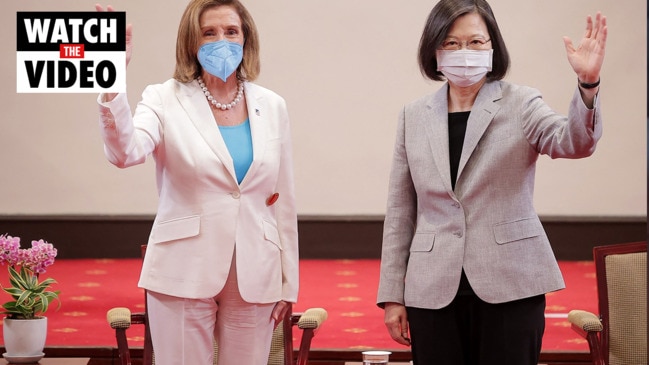
US Speaker Nancy Pelosi declared America has an “iron clad” commitment to preserve Taiwan’s democracy, after she defied tremendous pressure from Beijing to travel to Taipei for an unprecedented overnight visit.
Beijing responded with missile tests, military drills, cyber attacks and a widening trade coercion campaign, as Taiwanese President Tsai Ing-wen thanked Ms Pelosi for her historic trip and awarded her one of Taiwan’s most important medals, the Order of Propitious Clouds.
“Speaker Pelosi is truly one of Taiwan’s most devoted friends,” Ms Tsai said as she welcomed the US Speaker and her heavyweight congressional delegation on Wednesday.
“We are truly grateful to you for making this visit to Taiwan to showcase the US congress’s staunch support for Taiwan.”
Beijing denounced the visit, which marked the first time a US House Speaker had spent the night in Taiwan since Washington switched recognition to Beijing in 1979.
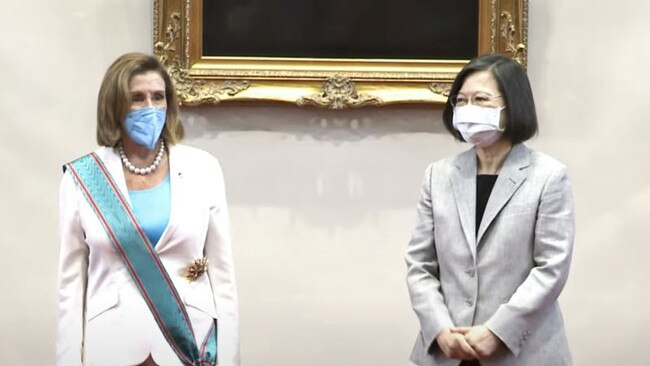
The People’s Liberation Army began preparations on Wednesday for missile tests and live fire military drills in six zones surrounding Taiwan. The exercises will continue until Sunday.
Ms Pelosi, who is second in the order of succession to the US presidency, said Beijing’s menacing of Taiwan had compelled her to come.
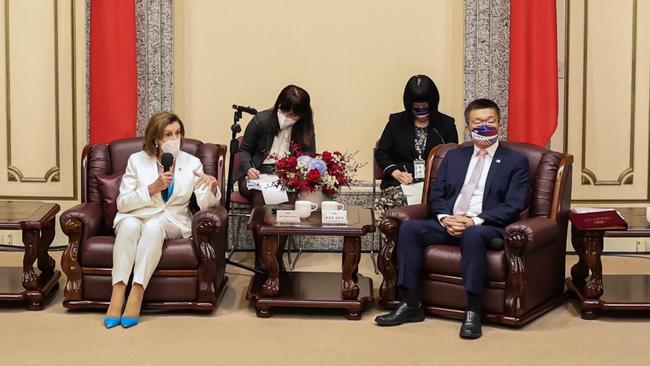
“Today our delegation … came to Taiwan to make unequivocally clear: we will not abandon our commitment to Taiwan,” she said. “Democrats and Republicans, House and Senate – both sides of the aisle (are) united in our support for Taiwan.”
Her visit – the highest-ranking official American trip to Taiwan in 25 years – comes after six years of increasing aggression from Chinese President Xi Jinping’s administration to Taiwan.
Beijing froze all high-level contact with Taipei after Ms Tsai’s election in 2016. The PLA has also heightened the tempo of its military activity near the democratic island of 23 million.
Ms Tsai on Wednesday acknowledged the worldwide attention on Taiwan following Russia’s invasion of Ukraine.
“Taiwan will not back down. We will firmly uphold our nation’s sovereignty and continue to hold the line of defence for democracy,” she said. “We will do whatever it takes to strengthen Taiwan’s self-defence capability.”
Ms Tsai said Taiwan – the world’s most important computer chip supplier – would continue to be a “reliable and trustworthy” partner for the US.
Ms Pelosi, who last visited Taiwan in 1999, said her delegation had come “to listen (and) to learn” from the vibrant democracy.
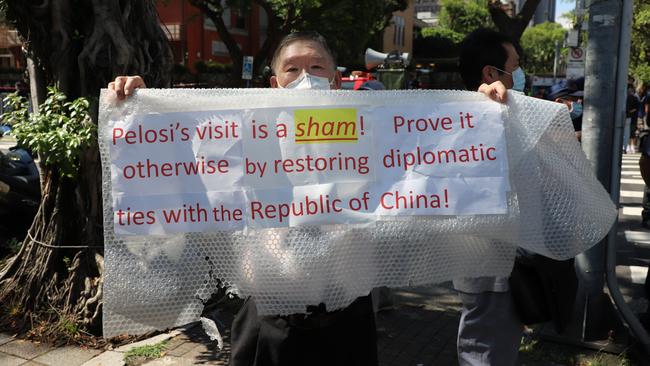
“The people of Taiwan have proven to the world that with hope, courage and determination it is possible to build a peaceful and prosperous future even in terms of the challenges you face,” she said.
“Today the world faces a choice between democracy and autocracy. America’s determination to preserve democracy here in Taiwan and around the world remains iron clad.”
Following warnings that China would “not sit idly by”, Beijing widened its trade coercion campaign on Taiwan on Wednesday, adding fish, fruit and sand to a growing list of black-listed trade.
The Xi administration also said it would take “disciplinary action” against the Taiwan Foundation for Democracy, whose vice-chairman is the Taiwanese Foreign Minister Joseph Wu. Taiwan’s Presidential Office website was hit by a cyber attack from what Taipei called “overseas forces”, taking it offline for 20 minutes on Tuesday.
The military plane carrying Ms Pelosi, 82, and other Democrat politicians departed from Malaysia on Tuesday and took a roundabout route to avoid transiting the South China Sea. Mr Wu – who was last year sanctioned by Beijing – met Ms Pelosi at Taipei’s Songshan airport, while hundreds of Taiwanese gathered to cheer the plane’s arrival.
A few dozen protesters gathered outside Taiwan’s parliament on Wednesday morning. One of the demonstrators, Kaidee Lee, 71, said he believed Ms Pelosi was a “phony” who was only in Taiwan for “publicity”.
“If she is for democracy and human rights, as she stated, then why not restore diplomatic ties with the Republic of China?” Mr Lee told The Australian.
The Republic of China (Taiwan) is Taiwan’s official name. Taipei felt betrayed by Washington’s switch of recognition to Beijing in 1979.
Many in Taiwan are desensitised to Beijing’s threats of annihilation.
“It’s funny. I was here during the 1996 crisis. I was in high school … so it was kind of the same drill. We’ve been through it. We know what’s going to happen,” said Jack, 40.
“We’ll see today how the world will react. Hopefully it will be peaceful,” he told The Australian after stopping to take a photo outside Taiwan’s Presidential Office.
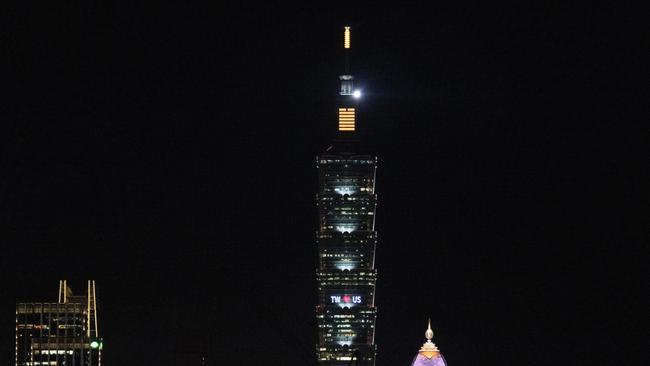
Over in China, social media users complained about Beijing’s inability to stop the trip.
Other Chinese commentators tried to downplay the significance of the trip.
“The aim is not Pelosi, but to solve the Taiwan issue. Don’t rush or be impatient,” one advised.
Meanwhile, Anthony Albanese said the level of US engagement with “our Taiwanese counterparts” was a matter for them.
And Foreign Minister Penny Wong said “all parties should consider how they best contribute to de-escalating the current tensions” in the Taiwan Strait.
Additional reporting: Rosaline Walters, Heidi Han, Ben Packham
More Coverage
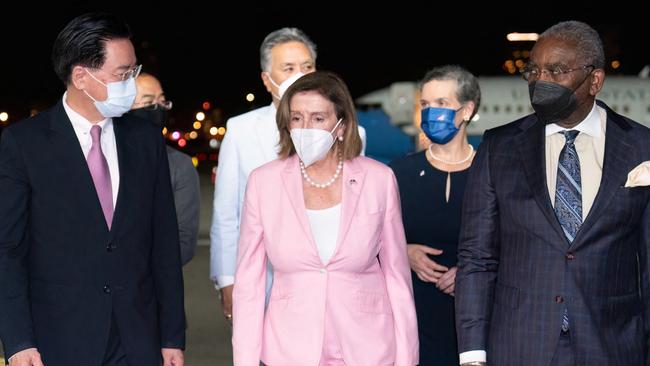


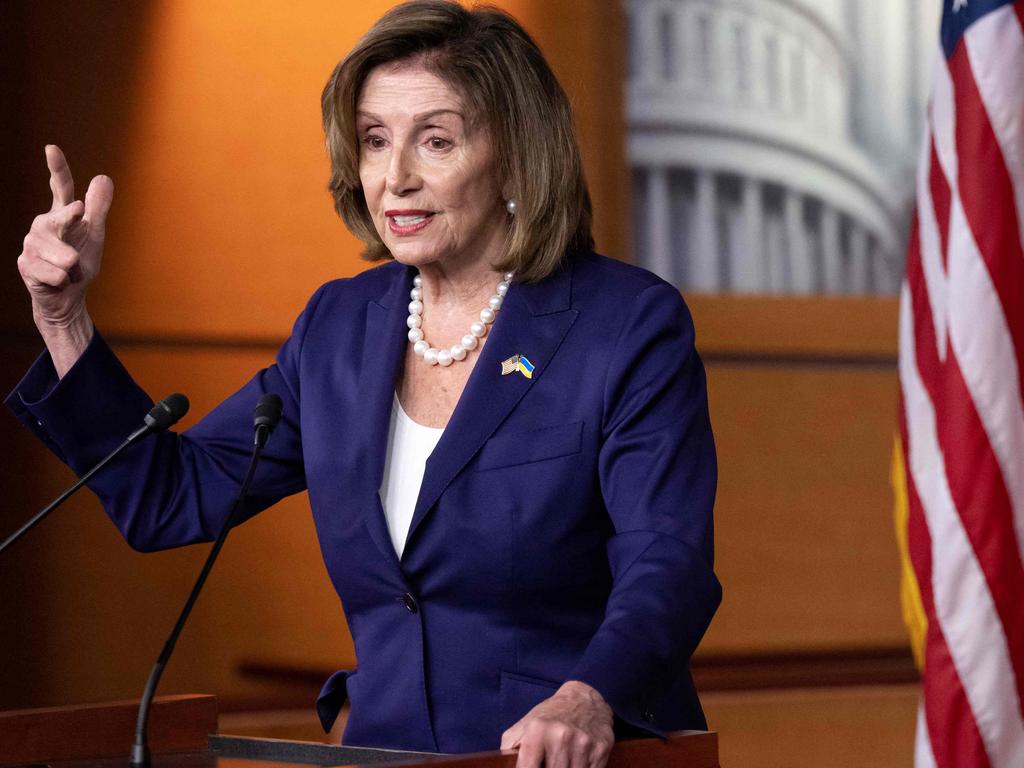
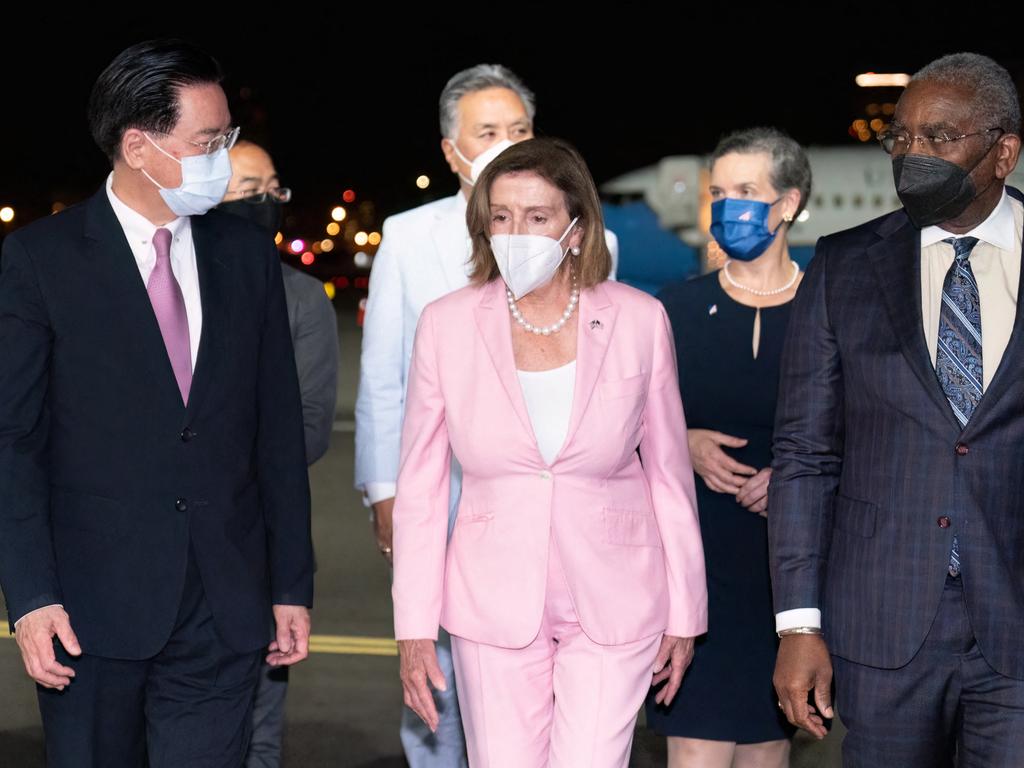

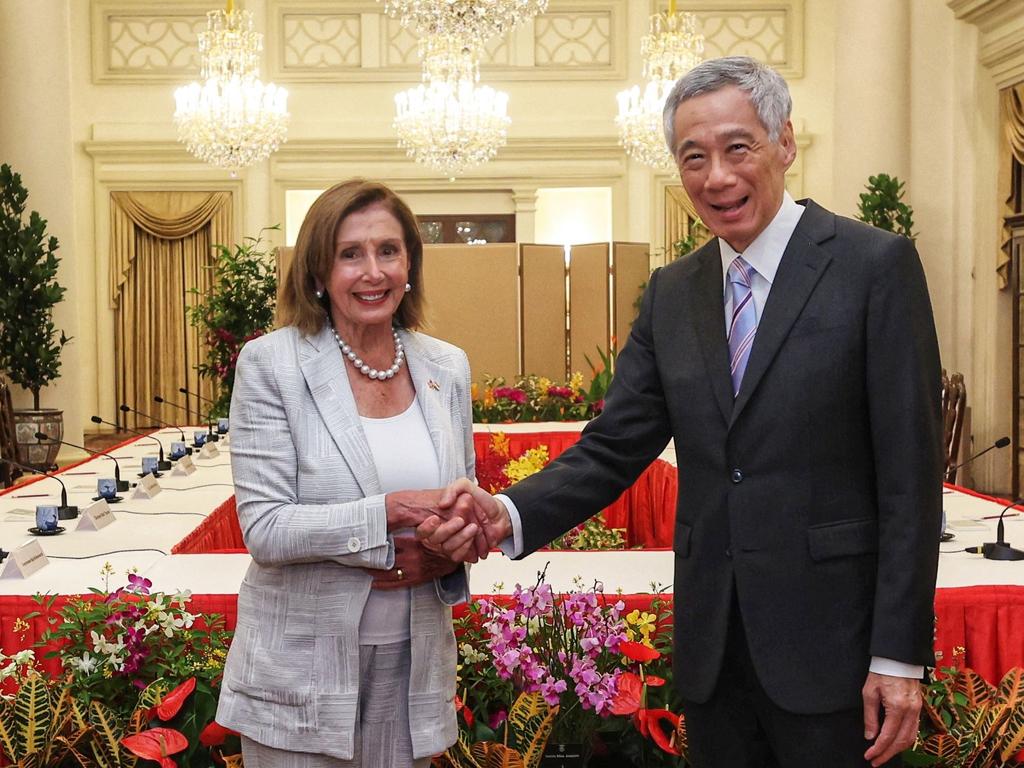


To join the conversation, please log in. Don't have an account? Register
Join the conversation, you are commenting as Logout